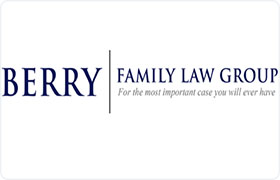Clarkston Reorganization Lawyer, Georgia
Sponsored Law Firm
-
 x
x

Click For More Info:
-
Berry & Associates
2751 Buford Highway NE Suite 600 Atlanta, GA 30324» view mapBankruptcy For the Most Important Case You'll Ever Have
We know how important your case is. And we know we really only have one, best chance to get it right. And we will.
800-659-5561
Karen King
✓ VERIFIEDBankruptcy & Debt, Bankruptcy, Collection, Credit & Debt, Reorganization
We have helped thousands of clients avoid home foreclosure, car repossession and reduce their other debts. Our experienced team fully understands the... (more)
Christopher Phillips
Workout, Reorganization, Credit & Debt, Commercial Bankruptcy
Status: In Good Standing
W. Calvin Bomar
Estate Planning, Corporate, Business Organization, Reorganization
Status: In Good Standing
FREE CONSULTATION
CONTACTJeff Field
Bankruptcy & Debt, Consumer Bankruptcy, Credit & Debt, Reorganization
Status: In Good Standing Licensed: 40 Years
FREE CONSULTATION
CONTACTDavid Henry Jones
Civil Rights, Reorganization, Credit & Debt, Bankruptcy
Status: In Good Standing Licensed: 42 Years
Thomas J. Reichard
Reorganization, Bankruptcy, Bankruptcy & Debt
Status: In Good Standing Licensed: 28 Years
Philip Lindsey Rubin
Litigation, Reorganization, Bankruptcy, Bankruptcy & Debt
Status: In Good Standing Licensed: 29 Years
Craig B. Lefkoff
Litigation, Reorganization, Bankruptcy, Bankruptcy & Debt
Status: In Good Standing Licensed: 40 Years
Damon Anthony Moore
Communication & Media Law, Civil Rights, Corporate, Reorganization
Status: In Good Standing Licensed: 20 Years
 Matthew Berry Atlanta, GA
Matthew Berry Atlanta, GA AboutBerry & Associates
AboutBerry & Associates Practice AreasSpecializations
Practice AreasSpecializations

